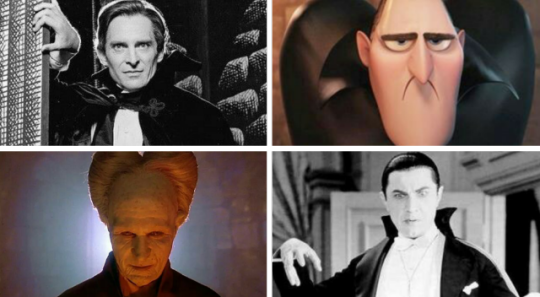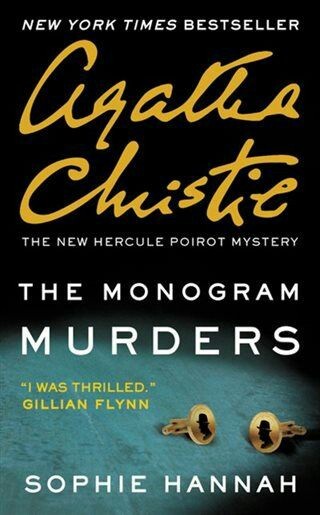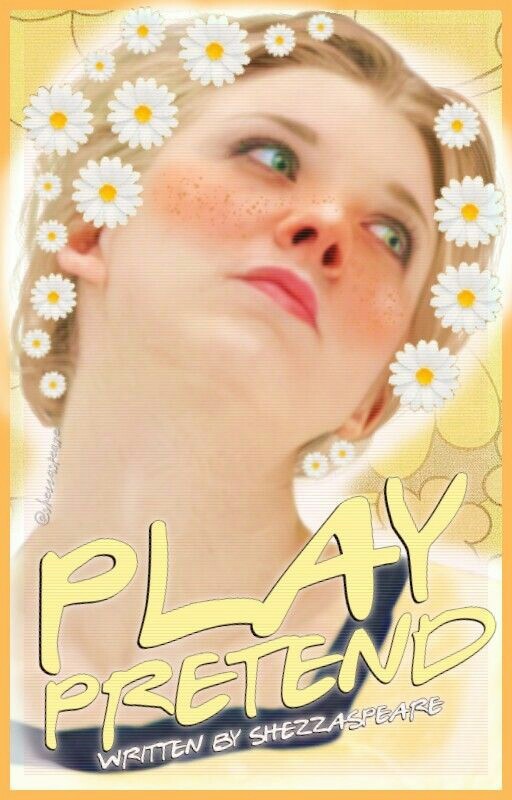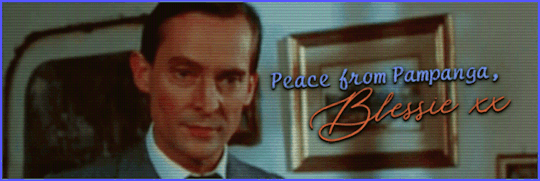#i just had to find a way to get something from the rue morgue episode to work
Text

" you picked the worst job to hide your true nature. ranpo on the other hand, he picked better. he's mother theresa for all they know. inside though, you two are the most alike. you hate him because he hid it better. " / @dreadmorgue
#dreadmorgue#𝐃𝐀𝐙𝐀𝐈 : ALL AN ACT / IC#𝐃𝐀𝐙𝐀𝐈 : RED RIGHT HAND / DECAY OF ANGELS VERSE#i just had to find a way to get something from the rue morgue episode to work#local creator of chaos is trying to get a rise out of him
3 notes
·
View notes
Text

Pilot/Episode 1: Patching Things Up With Pastiche & Fanfiction
Hi, hello, and the wait is finally over! My name is Blessie, and welcome to the first episode webisode log installation I've decided to call these things an episode for now because why not also let me know what do you actually call these things episode of The Science of Fanfiction, where we take a closer look into our beloved works of fanon because we've all got plenty of time to spare till Season 5. Before I continue, I would like to thank everyone who's liked and reblogged the last few posts before this one. It means a lot for a small and growing Tumblr user like me, and your support is something I cherish more than my modules. You guys rock!
Anyways, like with most things, we have to talk about the boring and bland stuff before we proceed with the fun stuff. For today, we are going to settle the difference between a couple of things: first being the confusion between pastiche and fanfiction; then the distinctions between tropes, clichés, and stereotypes, which we'll tackle the next time. It's important for us to establish their true meanings in order for us to really understand what fanfiction truly is, even if it's merely just a work done for the fandom. I know – it's boring, it's something that shouldn't be expounded that much, but I believe that all forms of writing (unless it's plagiarised) is a work of art — and fanfiction is not something we always talk about. I hope that by the end of this, you'll learn about what they really are as much as I did. Let's begin to talk about the—

[Image ID: A flashback of John (left) and Sherlock (right) finding an elephant (not in the screen) in a room in The Sign of Three. End ID]
. . . I did say that this GIF will always have to make an appearance here, didn't I?
So, just as with Sherlock Holmes, all other works of fiction have their own pastiches and fanfiction, and many more original works out there have taken inspiration from them to create their own books. Although they've gained popular attention, this will not be possible if they did not have taken inspiration from the materials their writers had at the time.

[Image ID: Various actors as Dracula. Jeremy Brett in 'Dracula' (1978) (upper left), Adam Sandler in a voice role for 'Hotel Transylvania' (2012) (upper right), Gary Oldman in 'Dracula' (1992) (lower left), and Bela Lugosi in 'Dracula' (1933) (lower right). End ID]
For instance, Bram Stoker's 'Dracula' (the second most adapted literary character, next to the consulting detective himself) has been portrayed on the screen over 200 times — from Gary Oldman to Adam Sandler — and has spawned off numerous books and pastiches of its own such as Stephen King's 'Salem's Lot'. Its cultural impact served as a basis of how we see vampires today, since some characteristics of the Count were made by Stoker himself. Stoker's creation is the brainchild of his predecessors and inspirations.

[Image ID: Vlad the Impaler (left) and a book cover of 'Carmilla' by J. Sheridan Le Fanu (right). End ID]
Other than the ongoing hysteria over dead back then and the existing vampire folklore, Stoker also took his inspirations from the published books on vampires he had at hand. He is said to have taken inspiration from Vlad the Impaler, a Romanian national hero known allegedly for having impalement as his favourite method of torture. He is also said to have been inspired by the J. Sheridan Le Fanu's 'Carmilla', a Gothic lesbian vampire novella that predates Dracula by 26 years. I could go on, but hey, we're going back to Sherlock Holmes now before I deviate any further. However, if you want to know about Dracula's literary origins, I suggest you watch Ted-ED's videos about the subject matter such as this one or this one.
Very much like Stoker, ACD didn't just conceive Holmes on his own. He took his own inspirations from what he had available at the time.

[Image ID: Dr Joseph Bell (left) and Edgar Allan Poe (right). End ID]
As we all know, ACD's biggest inspiration for Sherlock Holmes was one of his teachers at the Edinburgh University, Joseph Bell. He was famous for his powers of deduction, and he was also interested in forensic science — both characteristics which Holmes is greatly known for. He also drew inspiration from Edgar Allan Poe's sleuth, C. Auguste Dupin ('The Purloined Letter' & 'Murders in Rue Morgue'). As ACD himself has said at the 1909 Poe Centennial Dinner: "Where was the detective story until Poe breathed life into it?" Some other writers he took after are Wilkie Collins, Émile Gaboriau, and Oscar Wilde.
Now, what does this say about us Sherlockians/Holmesians (depending if you're the coloniser or the one that was colonised)? Basically, ACD laid the groundwork for us with Sherlock Holmes: his humble abode 221B that he shares with his flatmate Dr. John Watson, his adventures, memoirs, return, casebook, last vow, and all that. Now that we have this material at hand, we can now make our own versions, takes, or even original stories featuring the characters of the Canon. Our inspiration comes from ACD's Sherlock Holmes, and we now get the chance to make our very own stories/conspiracy theories about them.
As I have mentioned earlier, Sherlock Holmes is the most adapted literary character in history. He has been adapted in over 200 films, more than 750 radio adaptations, a ballet, 2 musicals; and he's become a mouse, a woman, a dog, even a bloody cucumber. On top of all that are numerous pastiches and fanfics, and finally, we have arrived at the main topic of our post!
Fanfiction and pastiche are often confused together since they have three common elements: they take after the original work, they usually use the characters in that original work, and more often than not do are they set in that same time frame/period or not long after that. The common misconception is that pastiche are printed fanfiction, which is only partly true. While pastiche is definitely fanfiction in some ways and vice versa, there are fanfictions out there that aren't necessarily classified as pastiche that have been published.
Let's get on with our definition of terms to clear up the confusion a little more. Pastiche, according to Literary Terms, is:
. . . a creative work that imitates another author or genre. It’s a way of paying respect, or honor, to great works of the past. Pastiche differs from parody in that pastiche isn’t making fun of the works it imitates – however, the tone of pastiche is often humorous.
A good example of a pastiche is Sophie Hannah's 'The Monogram Murders', which is her take from Agatha Christie's Hercule Poirot.

[Image ID: A book cover of 'The Monogram Murders' by Sophie Hannah. End ID.]
Although this was a commission from Christie's estate, it's still considered as a pastiche as:
It's takes after Christie's writing style;
It is set in the early years of Poirot's career (1929), which is still within the time frame that the author wrote him in;
It features Poirot and;
It pays respect to Christie in a sense that it stays true to her (Christie) characters and way of storytelling.
Meanwhile, our good and slightly unreliable friend Wikipedia defines fanfiction as:
. . . is fictional writing written by fans, commonly of an existing work of fiction. The author uses copyrighted characters, settings, or other intellectual property from the original creator(s) as a basis for their writing. [It] ranges from a couple of sentences to an entire novel, and fans can both keep the creator's characters and settings and/or add their own. [ . . . ] [It] can be based on any fictional (and sometimes non-fictional) subject. Common bases for fanfiction include novels, movies, bands, and video games.
To avoid any copyright infringement issues if I ever use a popular fanfic in the fandom, we'll use my (unfinished and unpopular) Sherlock Wattpad fic, 'Play Pretend'. You can read it here.

[Image ID: The second self-made book cover of Blessie/shezzaspeare's 'Play Pretend'. End ID]
Why is it considered a fanfiction and not a pastiche?
It takes after an adaptation of Sherlock Holmes (BBC Sherlock) which is a TV show, not the ACD canon itself;
The author (in this case myself) uses her own writing style and does not take after the original story's style;
Although it is set well in modern-day London and after Season 4, it also features scenes decades before the actual fanfic is set and outside of London;
I added a considerable number of characters, i.e. siblings to canon characters;
I had my own take some of the canon characters' personality especially after the events of Sherrinford;
It is written by a fan – myself. It is a work of fan labour and;
It is only a work of fanon, and isn't likely going to be considered by the show as its writing style is different from the actual show.
To put it simply, you can have more freedom in a fanfiction as it does not necessarily restrict you to follow or take after the original stories. Alternate universes (AUs) such as Unilock and Teenlock are perfect examples of this thing.
So can a pastiche be classified as fanfiction? Yes.
Can a fanfiction be classified as pastiche? Not all the time.
What's the difference? While yes, they share the basics, pastiche is technically leans more onto the original work's fundamental elements whereas fanfiction is a broader range of works inspired by the original work but doesn't necessarily follow all or any of its fundamental elements.
In order for us to understand it more, I'll give another example.

[Image ID: The 'Enola Holmes' title card (upper left) and Henry Cavill as its Sherlock holmes (upper right). Underneath it is a a scene from the opening titles of BBC Sherlock (lower left) and Benedict Cumberbatch as Sherlock Holmes in A Scandal In Belgravia. (lower right) End ID]
Most of you are familiar with these 21st-century adaptations of Holmes: the 2020 adaptation of Nancy Springer's Enola Holmes books and BBC Sherlock, which needs no further explanation – but for those who don't know, it's basically Holmes and the gang if they were alive today. I specifically chose these two as they are the ones that I believe would get my points across best. Though both are considered as wonderful pastiches with a well-rounded cast and awesome visuals, if we break them down bit by bit, we'll see which one is more of a pastiche and which one is more of a fanfic. (Yes, I know they're both screen adaptations. However, as Enola Holmes was based on the books and BBC Sherlock's fanfiction has the show's scenes written out in most fanfics, hear me out.)
They share these characteristics of a pastiche:
They feature characters from the Canon (Sherlock Holmes, Mycroft Holmes, and Lestrade);
They have additional characters added by the writers (Including but not limited to Molly Hooper, Eurus Holmes, and Philip Anderson for BBC Sherlock while Enola Holmes has Lord Tewkesbury, Eudoria Holmes, and Enola herself) and;
They pay respect to the original Canon as their stories are based on the cases (BBC Sherlock) or simply what was going on around them (Enola Holmes).
They also share these characteristics of a fanfic:
They are made by enthusiasts of Sherlock Holmes (Moffat has called himself and Mark Gatiss 'Sherlock Holmes geeks', while Nancy Springer's Enola Holmes books are not just one or two but six);
They follow a common trope (we'll discuss these tropes in the following episodes) that goes on in the fandom (Sherlock's Sister & Modern AU)
They are based on a fictional subject (Sherlock Holmes);
They used characters and story elements that are copyrighted by the author/author's estate (fun fact: prior to the production of Enola Holmes, the Conan Doyle Estate filed a lawsuit against Springer & Netflix over Sherlock's emotions since he was more 'sympathetic' than he was portrayed in the Canon – this was later dismissed by both parties) and;
Their writing styles don't necessarily follow ACD's.
Despite these similarities, there are very obvious differences between the two that separates them from being a pastiche and a fanfiction.
Enola Holmes embodies pastiche more as it doesn't stray far away from the original elements of the Canon. It's still set in Victorian England. While Springer added characters of her own and definitely twisted the Canon to suit her series, she didn't necessarily place them out of the social construct that was going on around the characters. It follows ACD's writing style more as Enola Holmes' setting still remains within the Canon's original setting.
Meanwhile, we can safely say that BBC Sherlock is a work of fanfiction. While it did give us The Abominable Bride, the main series focused on Holmes and Watson in 21st-century England, which is drastically different from Victorian England. There are phones, black cabs, and cellphones — things which ACD Sherlock Holmes doesn't have. It also diverted from the Canon in the characters themselves, which is mostly seen in the names: Henry Baskerville became Henry Knight, Charles Augustus Milverton became Charles Augustus Magnussen, the H in Dr Watson's name stood for Hamish and Sherlock's full name is actually William Sherlock Scott Holmes. They also changed the personalities of some Canon characters: Mary was actually an ex-assassin, Mrs Hudson was an exotic dancer who drove a kick-ass sports car, Irene Adler is a dominatrix, to name a few. Moffat and Gatiss created a world of their own featuring the characters of Sir Arthur Conan Doyle, which is really what most of us fanfic writers do with Mofftiss' rendition of Holmes.
In conclusion: while pastiche and fanfiction could have been the same thing, they're actually not. There's more to them that just printed fanfiction or pastiche e-books, and we all should take some time to see and observe them in a closer perspective.
And that's it for our first episode! I hope you enjoyed it. It was a lot fun for me to write this, especially now that I'm only starting. I would also like to note that while intensive research has been done on this series, some parts of this comes from my own observation and opinion, which may vary from yours. I am very much open to criticism, as long as it is said in a polite and civil manner. I'm still young, and to be educated as I go is something that could really help me with this series.
Like and reblog this you like it. It helps out a lot. Be sure to follow me as well and the tags underneath if you want to see more of TSoF.
See you soon!

Blessie presents – The Science of Fanfiction: A Study In Sherlock (2021) • Next
Follow me! • My Carrd | My YouTube Channel
SOURCES • Pinterest, Google Images, Wikipedia, Literary Terms, Conan Doyle Estate, Definitions, The Sherlock Holmes Book, and Google
#the science of fanfiction#sherlock#sherlock holmes#johnlock#bbc sherlock#dracula#enola holmes#lord tewkesbury#jeremy brett#shezzaspeare#bram stoker#acd#canon#fanfiction#pastiche#holmes#adlock#sherlolly#molly hooper#greg lestrade
91 notes
·
View notes